03.12.2018 — Southern Eagle Distributing, one of the oldest continual Anheuser-Busch distributorships in the United States, has purchased two propane autogas vehicles to reduce both emissions and costs.
 Two tax credits that affect fleets using alternative fuels have been extended. The Alternative Fuel Excise Credit and Alternative Fuel Infrastructure Tax Credit are now retroactively extended through the end of 2017 — a year past the original expiration of December 21, 2016.
Two tax credits that affect fleets using alternative fuels have been extended. The Alternative Fuel Excise Credit and Alternative Fuel Infrastructure Tax Credit are now retroactively extended through the end of 2017 — a year past the original expiration of December 21, 2016.
As fleets look to buy new buses, many approach a bid with a concerted effort to get the cost of the individual buses down as much as possible. After all, who doesn’t like to walk away from a good deal? With most districts are concerned with the “here and now” of an annual budget, it is very easy to lose sight of the costs that are created over the life of the vehicle. School buses have an average life of 10-15 years. That’s a long time to consider not only fuel costs, but also the cost of maintaining the vehicle, and replacing necessary parts.
2018 Factory Technician Workshops
All of the workshops are held at our Livonia, Michigan, headquarters. During the training, technicians will:
- Learn about propane properties and shop safety.
- Tour the manufacturing facility to learn how the fuel system is made.
- Depressurize propane fuel systems and transfer fuel between tanks.
- Remove and install fuel system components.
- Learn how to use service information and diagnostic equipment.
- Fix bugged vehicles with the skills they have learned.
Our 2018 Factory Technician Workshop are:
- March 20 – 21: Register Here
- May 15 – 16: Register Here
- July 17 – 18: Register Here
- September 11 – 12: Register Here
To get a better idea of what you can expect, click here to check out a sample workshop agenda.
If you have any questions about our Factory Technician Workshops, please contact Lance Suttle at lance.suttle@roush.com.
Success, Support and Surveys
Click here to take the survey
A customer’s overall experience with a product is influenced in multiple ways. When the product is commercial trucks and school buses, it is easy to understand why service and after-sale support is so important. Every day that a vehicle is out of service is costly and inconvenient. We want to ensure that even the most challenging repairs are completed for our customers as quickly as possible. Reducing vehicle downtime should be a primary goal for all of us, and we can each contribute to that effort.
Effective communication between the service center and ROUSH CleanTech is key.
Our support team is fully committed to being accessible and responsive. Ninety-six percent of all incoming calls to our 800-59-ROUSH support line are answered by a qualified support agent who is ready to help. Emails to our support inbox at support@roushcleantech.com are typically responded to within the hour. We are available weekdays between 8 a.m. to 5 p.m. Eastern, and messages received after hours are promptly returned the next business day.
The most efficient way to communicate with us on a warranty repair is by opening a case through our Online Warranty System. The sooner a case is opened, the sooner we can identify the problem and start working with you toward a solution. Your case will be assigned to one of our Technical Support Agents who can walk you through diagnostic and repair procedures, ship warrantied replacement parts via Next Day Air, and approve labor reimbursements.
Our support agents are focused on moving their cases through these steps as quickly as possible, but we need your help. If a ROUSH CleanTech support agent emails you to request vehicle diagnostics, it means we don’t yet have the information we need to provide a replacement part under warranty. The faster you respond to that diagnostic request, the less downtime for you.
Talking to the right person is also critical. Ideally, the person opening the case with us would be the same person who is repairing the vehicle. We are happy to provide anyone at your organization access to your warranty cases. You can register here. It’s especially important that the technicians remain in close communication with us throughout the repair process.
Please take a moment to participate in a brief survey to help us better understand your organization and identify the key players who can join our effort to reduce vehicle downtime.
If you have any question, please contact our Customer Support Manager, Travis Wolf at Travis.Wolf@roush.com.
Meet the Team
Our Field Service team continues to grow and evolve as we learn to serve you better. We’ve regionalized the team, led by Jefferson Reed. It now includes five territories each managed by a dedicated field service engineer. This model allows us to focus our attention on how we onboard service centers and to proactively support our dealer and service centers, ensuring the integrity of our network.
The Field Service team is your point of contact for any questions you may have about being part of the ROUSH CleanTech service network. If you’re having trouble working on a repair, have a technical question or simply want to talk to someone from our team, your regional Field Service Engineer is here to help.
Here are your supporting technicians:
Jefferson Reed
Field Service Manager
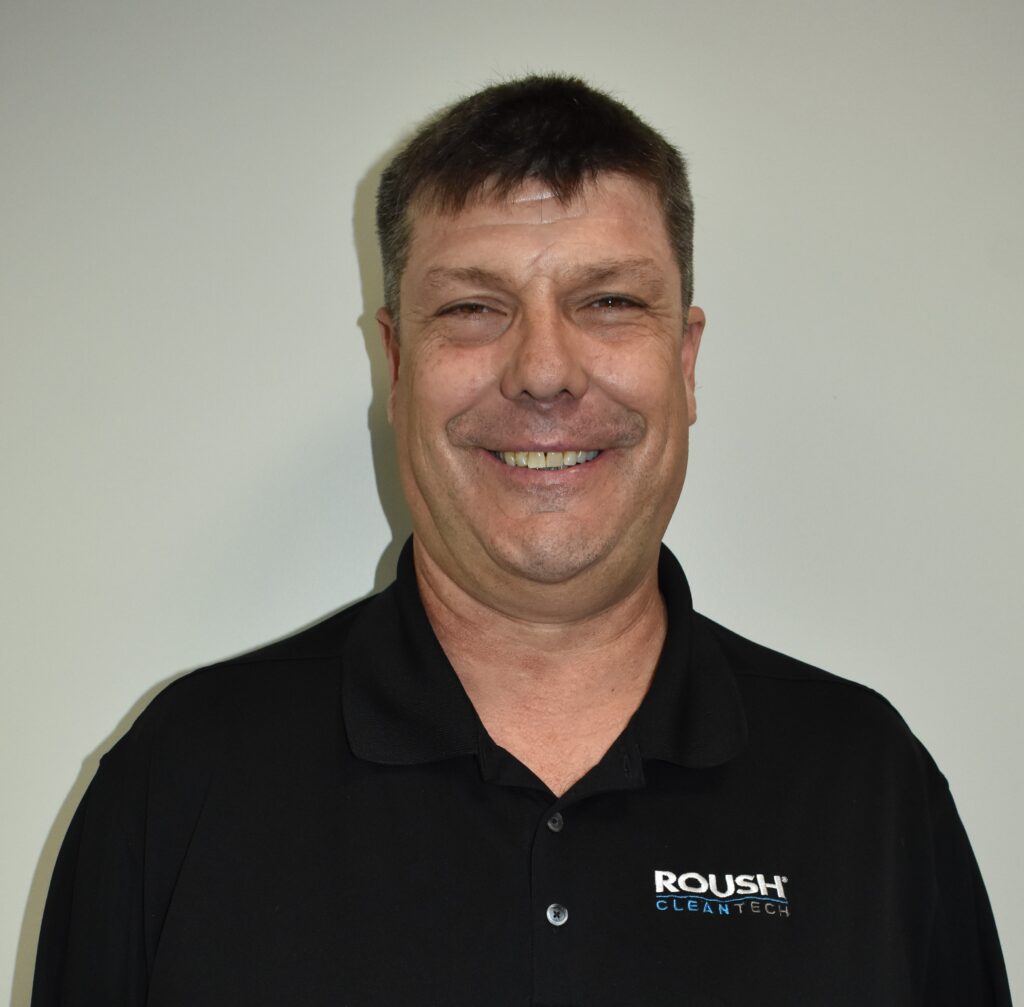
Jefferson Reed is the field service manager for ROUSH CleanTech’s Field Service team, leading a team of seven and overseeing after-deployment service, training and repairs. He has been with the company for eight years, previously serving as a field service engineer for the company. Previously, Reed was a Ford master technician, spending more than two decades in the field.
Outside of work, Reed enjoys spending time with his family and attending his two daughters’ softball games. He is an avid sports fan, most notably for the LSU Tigers, Cincinnati Reds and Minnesota Vikings. Reed is based out of Texas.
Pete Vistakos Jr.
Service Network Coordinator
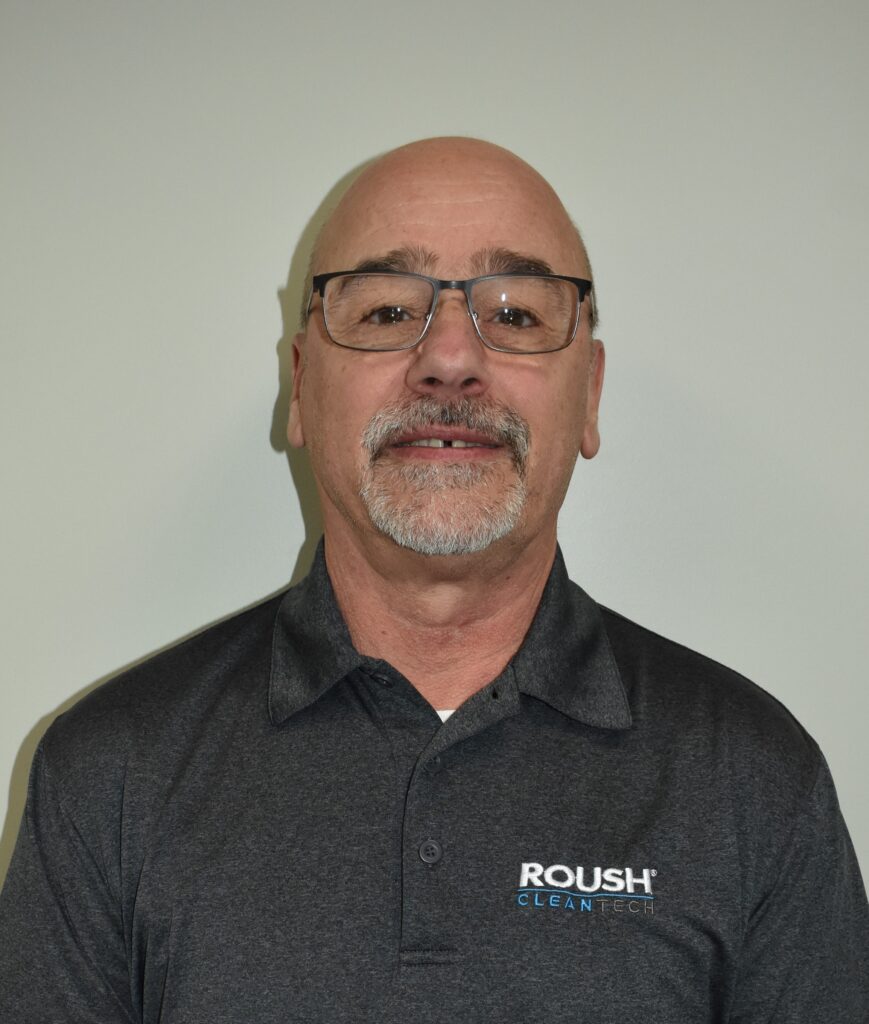
With almost 25 years of service with Roush and ROUSH CleanTech, Pete Vistakos, Jr. is the service network coordinator for the Field Service team. Throughout his expansive 50-year automotive career, he’s worked at Ford, Siemens and General Motors; however, he’s always had a tie to Roush through a variety of initiatives.
Outside of work, Vistakos has a passion for classic cars, model railroading and photography. He enjoys working on his property in Northern Michigan.
Anthony Taylor
Installation Network Manager
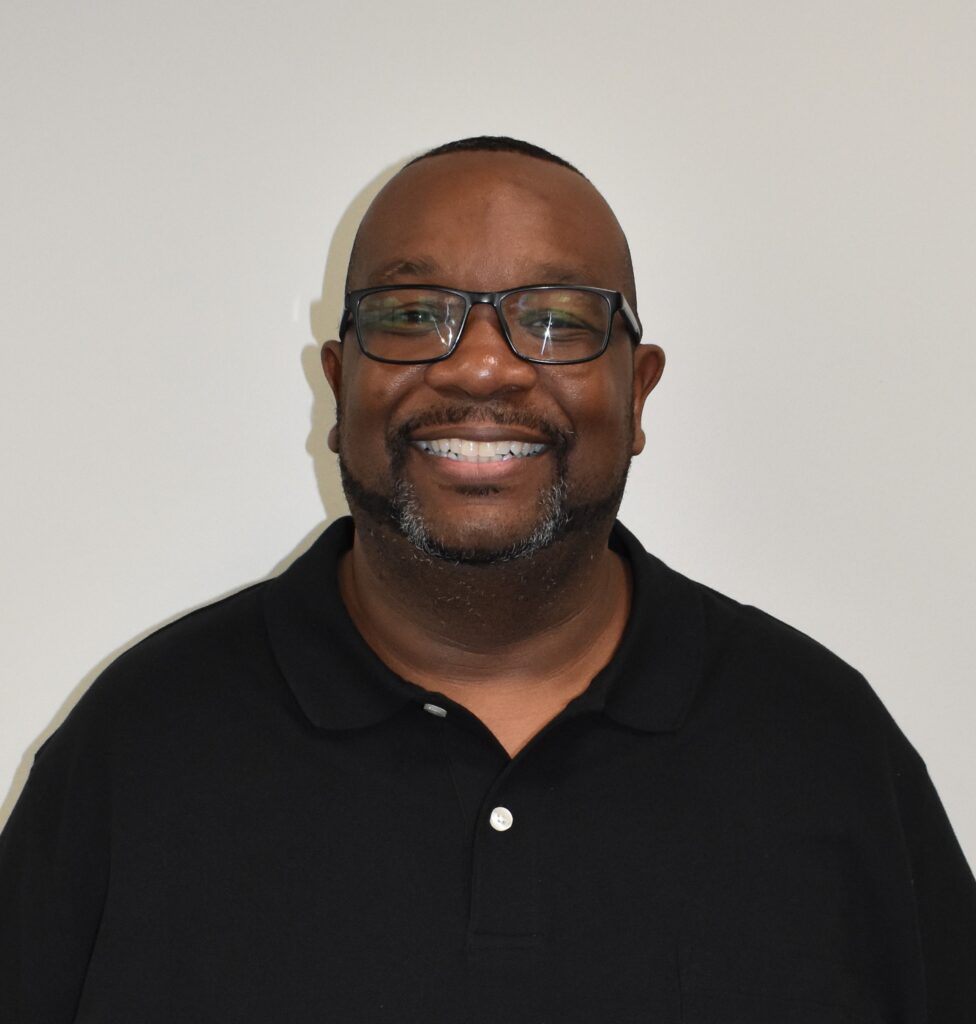
Anthony Taylor recently stepped into the role of installation network manager at ROUSH CleanTech, overseeing and assisting with the installation of propane fuel systems. With 29 years of experience in the automotive industry, Taylor brings a wealth of experience to the team. Taylor served as an assembly line team lead at Ford for 11 years.
Outside of work, Taylor loves to spend time with his family and continues to work on personal automotive projects. He is based out of North Carolina.
Lance Wedekind
Field Service Engineer – Great Plains Region
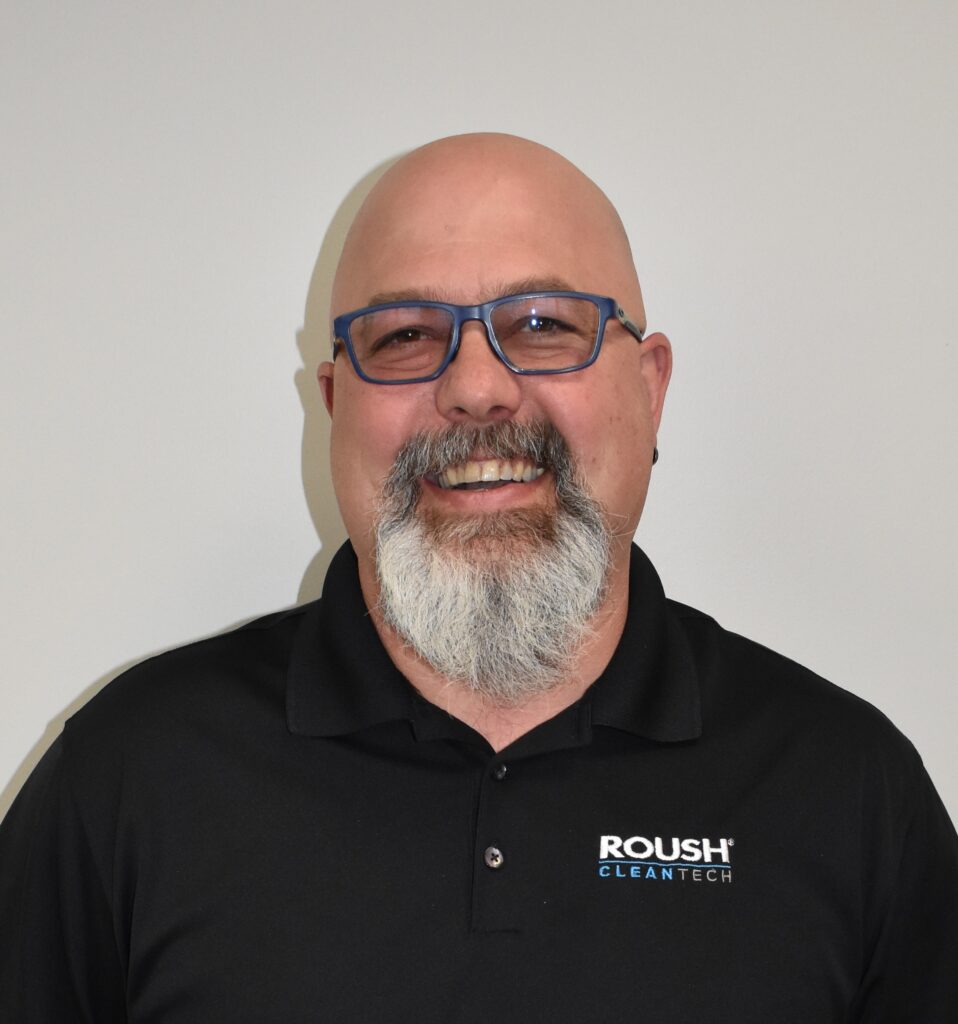
Lance Wedekind has been on the Field Service team for five years and serves the Midwestern United States. A senior master technician, Wedekind spent more than two decades working at Ford dealerships and five years at a school district. Prior to joining ROUSH CleanTech, Wedekind was a technician at Muscatine School District in Iowa, which adopted propane school buses during his tenure there.
Outside of work, Wedekind enjoys spending time outdoors hunting and camping. His love for the outdoors led him to host one of the Core of Engineers campgrounds in Illinois. Lance is based on the border of Illinois and Iowa.
AJ Coulson
Field Service Engineer – Great Lakes Region
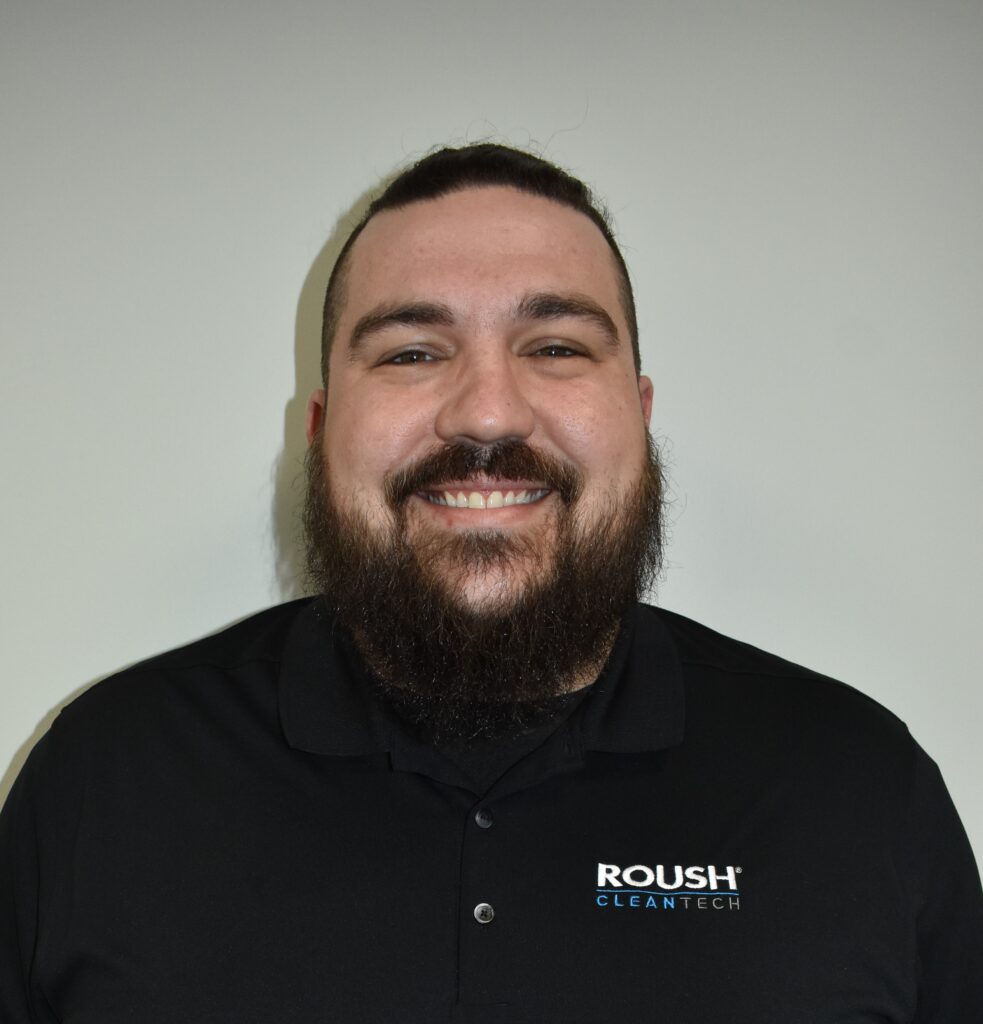
AJ Coulson has been on the Field Service team for seven years and currently serves the Great Lakes region. Prior to joining ROUSH CleanTech, Couldson was a technician with Ford for four years.
Outside of work, Coulson enjoys gaming, 3D printing and rooting for the Cardinals. He is based in Northwest Ohio.
Michael Simons
Field Service Engineer – Northern Atlantic Region
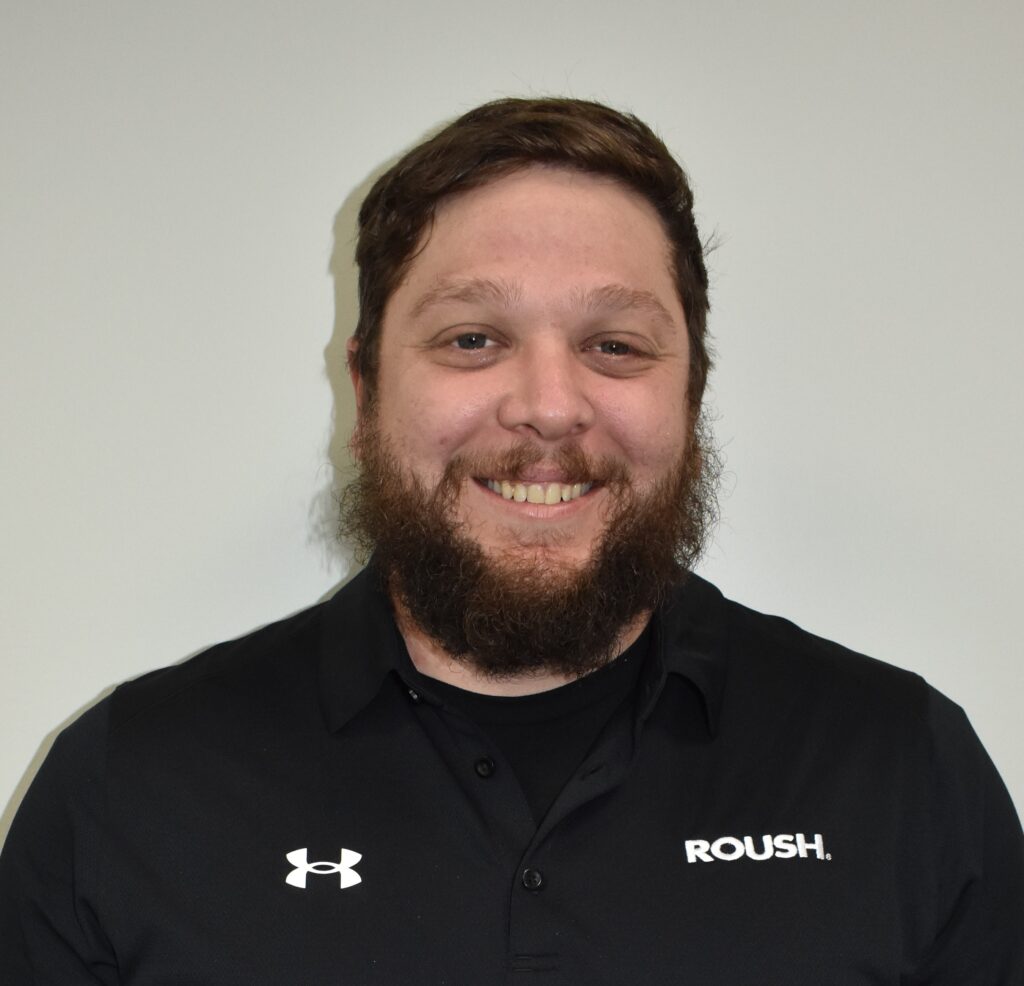
Coming up on one year with ROUSH CleanTech, Michael Simons is the newest member of the Field Service team. He was previously a master technician at Ford, working on electrical and driveability diagnosis and network communication faults.
Outside of work, Simons is a family man who loves spending as much time as possible with his wife and three young children. He frequently serves as the master durability tester of his children’s Hot Wheels. Simons is based out of Pennsylvania.
Kale Sciranko
Field Service Engineer – Southern Atlantic Region
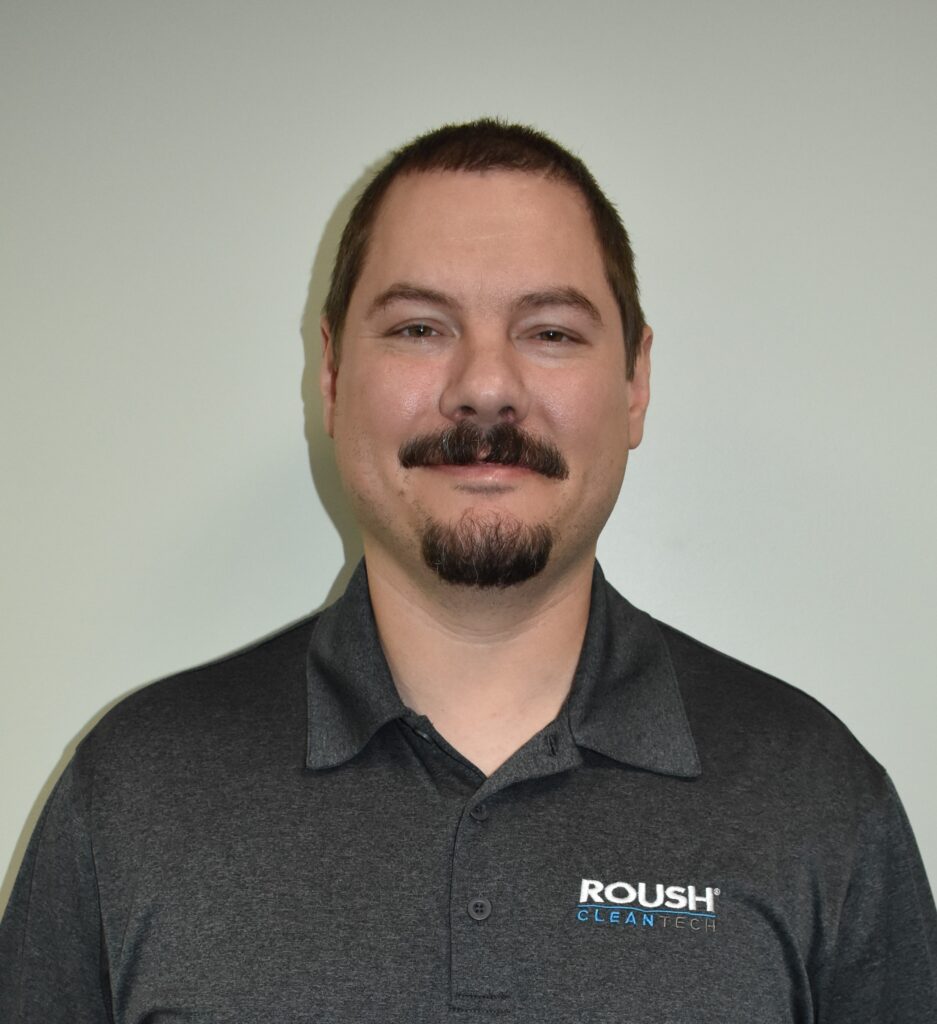
Kale Sciranko has served as ROUSH CleanTech’s field service engineer for the Southern Atlantic region since 2021. Previously, Sciranko was a master technician and service manager for Ford dealerships. He also worked for a railroad as a mechanic for 10 years.
Outside of work, Sciranko is a big fan of European soccer and specifically Manchester United. He loves to hunt and work on vehicles (including his wife’s ‘76 Corvette). Sciranko is based out of Pennsylvania.
Julian Din
Field Service Engineer – Pacific Region
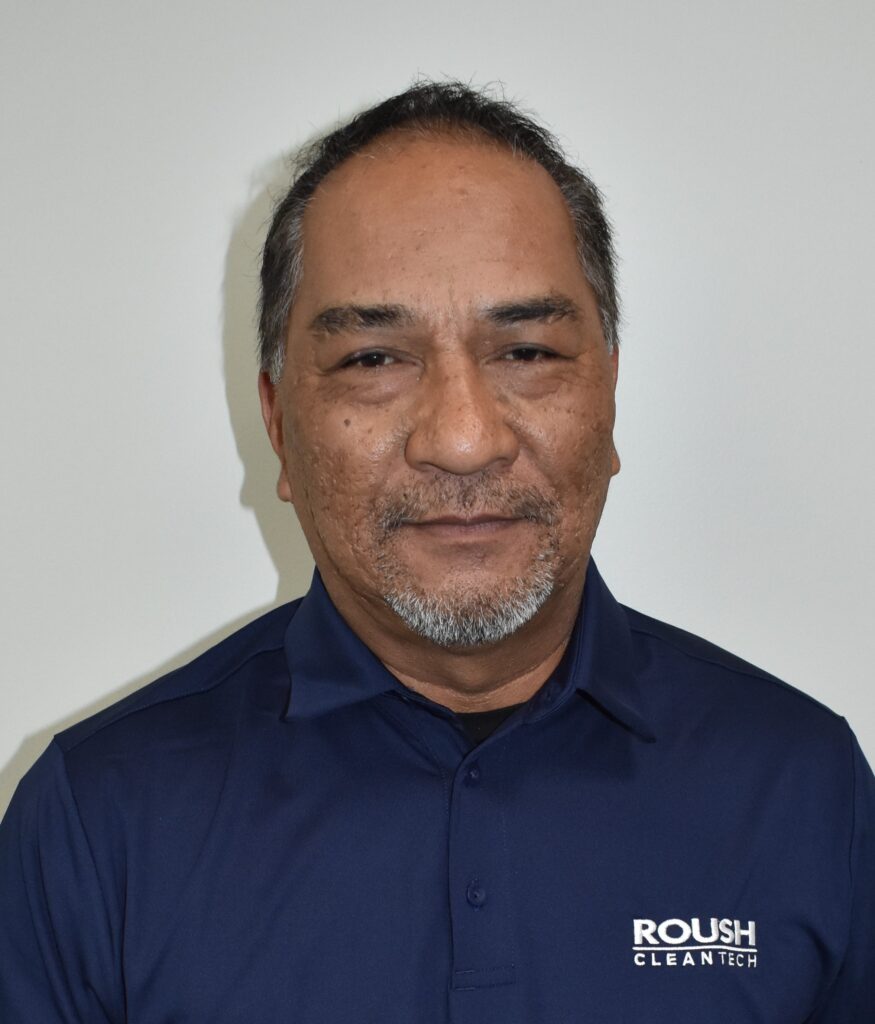
Julian Din has been on the Field Service team for four years as the field service engineer for the Pacific region. Prior to ROUSH CleanTech, Din spent 20 years as both a master technician for Ford as well as a shop foreman and manager.
Outside of work, Julian loves to spend time at the beach with his family, going longboarding and paddleboarding with his boys. He isan avid tournament bass angler, and volunteers as a club volleyball and water polo coach. Julian is based out of Central California.
Thanks for partnering with ROUSH CleanTech. If you have any questions, please contact Jefferson Reed at Jefferson.Reed@roush.com.
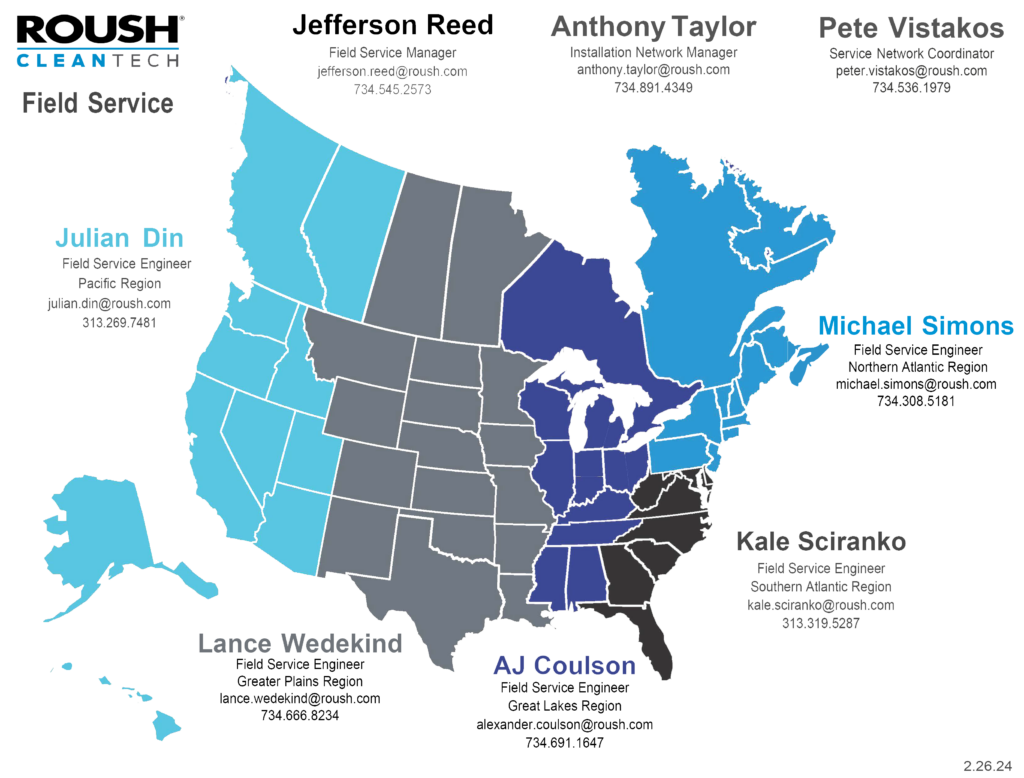
ROUSH Mustang Contest Revs Up!
For those of you who sold a propane school bus this fiscal year, you’ve been entered to win a brand new 2018 ROUSH Mustang as well as quarterly prizes. We held our first quarterly drawing for four $250 Visa gift cards.
And the quarterly winners are…
- Shooter Roberts, Yancey Bus Sales, Customer: Fulton County
- Dave Lintern, School Lines, Customer: School Lines Stock
- Tyler Nohe, MacAllister Transportation, Customer: MSD Warren Township
- Jim Willkomm, Wisconsin Bus Sales, Customer: Harms
WINNERS: Please reach out to your ROUSH CleanTech alternative fuels sales representative to claim your prize.
Not familiar with the contest? The grand prize is a ROUSH Stage 3 Mustang valued at more than $60,000. For every propane bus you sell starting on November 20, 2017, you automatically earn one entry to win. So far this fiscal year, over 700 propane school buses have been sold.
Remember that the more propane buses you sell, the more entries you gain, increasing your odds to take home this iconic muscle car. One salesperson entry will be chosen at random at the end of Blue Bird’s fiscal year 2018, and the lucky winner will take delivery of the Mustang at the 2018 annual dealer meeting.
We’re also offering giveaways throughout the year to reward your propane bus sales efforts. As previously mentioned, we’ll pick four winners each quarter to receive a $250 gift card.
Good luck, and let’s sell propane buses!
If you have any questions about the contest, please contact Ryan Zic at Ryan.Zic@roush.com.
Volkswagen Update: February 2018
At the end of January, Wilmington Trust filed a Notice Beneficiary Designation, which provides every state, Puerto Rico, the District of Columbia, and a contingent of Tribal Nations with authority to begin distributing each’s allocation of Volkswagen settlement funds. However, before doing so, each state must publish a Beneficiary Mitigation Plan and make it publicly available for at least 30 days.
We must engage with state agencies immediately to create financial incentive opportunities for propane school buses. As a reminder, states can select which fuel and vehicle types they want to fund. Without active engagement, we run the risk of not having funding for buses fueled by propane.
As a next step, we highly recommend contacting Chelsea Jenkins, Chelsea.Jenkins@roush.com, to discuss how best to approach your state agencies.
Dealer Spotlight: Girardin Ontario
Dealer Spotlight: Girardin Ontario
 Interviewee: Jane Greig
Interviewee: Jane Greig
Title: Regional School Bus Account Manager (School Bus Sales)
Q. How long have you been in the school bus industry?
A. I’ve been in the industry for 11 years. When I started in bus sales, I was selling school bus parts. One of my regular customers was Cook School Bus Lines.
Q. How did you start the propane bus conversation with Cook School Bus Lines?
A. I started with the fuel conversation. I offered all the information I had about propane. We didn’t have a propane bus demo yet, so I took a gasoline bus to his site to show him something other than diesel.
Q. Did this influence his purchase?
A. Yes. At first, his order was for 18 propane and 30 diesel. After our discussions, Cook School Bus Lines did some more research on its own and spoke to current propane customers. The company then reversed the order — 30 propane and 18 diesel!
Q. Did you advise him on fueling infrastructure?
A. Cook School Bus Lines has infrastructure on its property that needs to be updated. They are already working with two propane providers to get that done.
Q. What is your motivation to sell propane buses?
A. My relationship with my customers is my strongest asset and I want what is best for them.
This was my first big propane sale, and now I’m incredibly motivated to sell propane. There’s a prestige behind selling propane and I’m glad I’m finally feeling it!
Q. How does Girardin Ontario promote alternative fuels?
A. Normally, we each have a propane demo to take to customers, and the company is really good at doing ride & drive events. It’s definitely a group effort.
Alt Fuel Tax Credits Retroactively Extended Through 2017
Good news — two tax credits that affect propane autogas fleets have been extended! The Alternative Fuel Excise Credit and Alternative Fuel Infrastructure Tax Credit have been retroactively extended through December 31, 2017 — a year past their original expiration of December 21, 2016.
Why the excitement? Propane autogas is cheaper than gasoline by up to 40 percent and diesel by about 50 percent, and now the tax credit of 36 cents per gallon of propane is available for any fleet that purchased propane autogas last year. And, for those of you who installed propane infrastructure, the fueling equipment is eligible for a tax credit of 30 percent of the cost, not to exceed $30,000. Keep in mind that propane infrastructure is already the lowest cost of any transportation energy source — conventional or alternative.
We need to make sure that we’re not always playing catch up with legislation. There has been a lot of discussion around the industry’s approach to these tax credits. Contact your elected officials and voice your support for the continuation of these incentives. Just a few minutes of your time will show our elected officials that you back alternative fuel credits — now and for our future.
Additionally, Clean Cities coalitions need your support. Since its inception in 1993, the Department of Energy’s Clean Cities program has worked to cut petroleum use in transportation through local outreach and education with stakeholders in their region. They have encouraged the use of alternative fuels and advance vehicle adoption, and now they need our help to ensure Congress recognizes their value. Please reach out to your representative and express your support.
To learn more about current legislation and programs for propane autogas vehicles, call us at 800.59.ROUSH or contact Chelsea Jenkins, executive director of government affairs, at Chelsea.Jenkins@roush.com.














